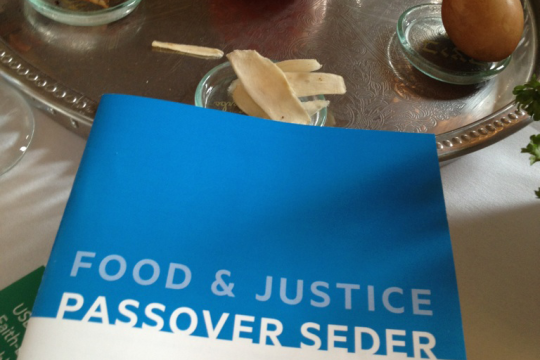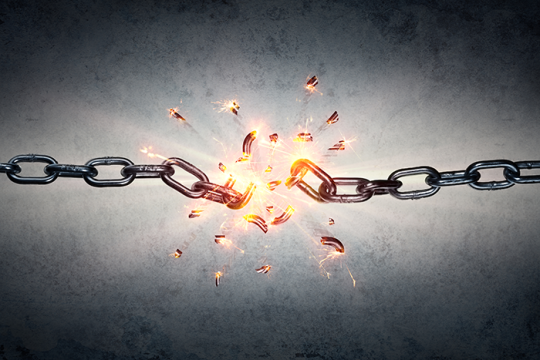Rabbi Chaim Halberstam, a distinguished Hasid, told a parable about the Days of Awe of a man who is lost in the woods. Just when he is losing hope, he runs into another person and is filed with joy, exclaiming "Brother, tell me which is the right way. I have been wandering for days." His fellow responds by saying that he, too, has been wandering, and is sure that his way is also the wrong way. He reassures, him however, that working with each other, they can find a new way out – together.
This story underscores a core principle of the Days of Awe: They are inherently relational. The word "relational" is in danger of becoming so overused as to become meaningless, but it is critical – and during these days of teshuvah (return, repentance) and s’licha (forgiveness), the central role of relationship in Judaism comes even more into focus. These are the very days in which we reflect deeply on our relationships to others; who have we slighted? With whom must we repair? The focus of these High Holidays is actually a reminder that Judaism calls individuals into relationship all year round.
Ron Wolfson has given the Jewish community a great gift in his book, Relational Judaism. He has sparked a conversation and challenged our Jewish congregations and institutions to ask a fundamental question: Are we bureaucratic organizations that offer programs? Or are we communities of people, in meaningful relationship, bound by common purpose?
Most of us have experienced institutions and congregations as bureaucracies that relate to us through programs. We are billed for services, attend events, etc. Too often, after an event or a program, we are no less connected to others in our midst. Yet, most of us have also experienced powerful, sustainable Jewish communal engagement. Thankfully, many of us have shared authentic learning, profound spirituality, and meaningful work for social justice, in the context of relationships with others with whom we grew and learned. The other women, men and children with whom we shared these sacred experiences become the ones in whom we confide, to whom we turn, with whom we rejoice.
The challenge to all our congregations is how? How do we focus on fostering sustainable relationships, rather than simply running more events and activities? So many synagogues get caught on a programmatic treadmill. In their desire to reach more people, they offer more and more programs. But what their constituents yearn for is true connection; what they seek is, indeed, "relational Judaism."
One critical first step is to change our definition of success. To what extent are we measuring our constituents' deepening connections to one another? As we challenge our communities to deepen peoples' engagement with meaningful Jewish experiences, we should also be focusing on the extent to which we are strengthening their social networks within our communities.
The High Holidays give us a profound opportunity to examine our own communities and ask how "relational" they really are. Are we participating in experiences of tefila (prayer) that bind us to others? Or are we sitting anonymously in a pew? Are we attending activities or are we sharing profound experiences of meaning and purpose that not only enrich our lives, but actually connect us more deeply to one another? These are the kind of difficult questions a "relational" Jewish community asks itself.
Another Hasidic master, Rabbi Nachman of Breslov famously pointed out that the miracle of living is that a person reaches out simultaneously in three directions at once: inward toward self, upward toward God, and outward toward others. These Days of Awe challenge us to ask: Do our communities succeed in fostering such a miraculous way of living?
See also: "There is Still Time! Preparing for the Days of Awe for Real" from the Wexner Foundation
Related Posts
Image

Passover 2024: The Three Central Messages of Pesach
The Exodus story is the master narrative of the Jewish people. As most of us know, it tells the story of the Hebrew slaves in Egypt and the rise of Moses as their liberator. It reminds us that in 2024, the universality of Passover's three-part message again reverberates through the generations: freedom, love, and justice.
Image

Modern-Day Plagues of Injustice and Inequality
On Passover, we recount the Ten Plagues that were inflicted upon the Egyptian people. Here are some of the "plagues" and injustices that afflict our present-day society -- and actions you can take.
Image

Setting Your Leaders Up For Success
It's board nomination season again! Time to compile lists, get recommendations, and start calling the future leaders of your congregation. The URJ has resources, advice, and initiatives to set you and your board up for success.